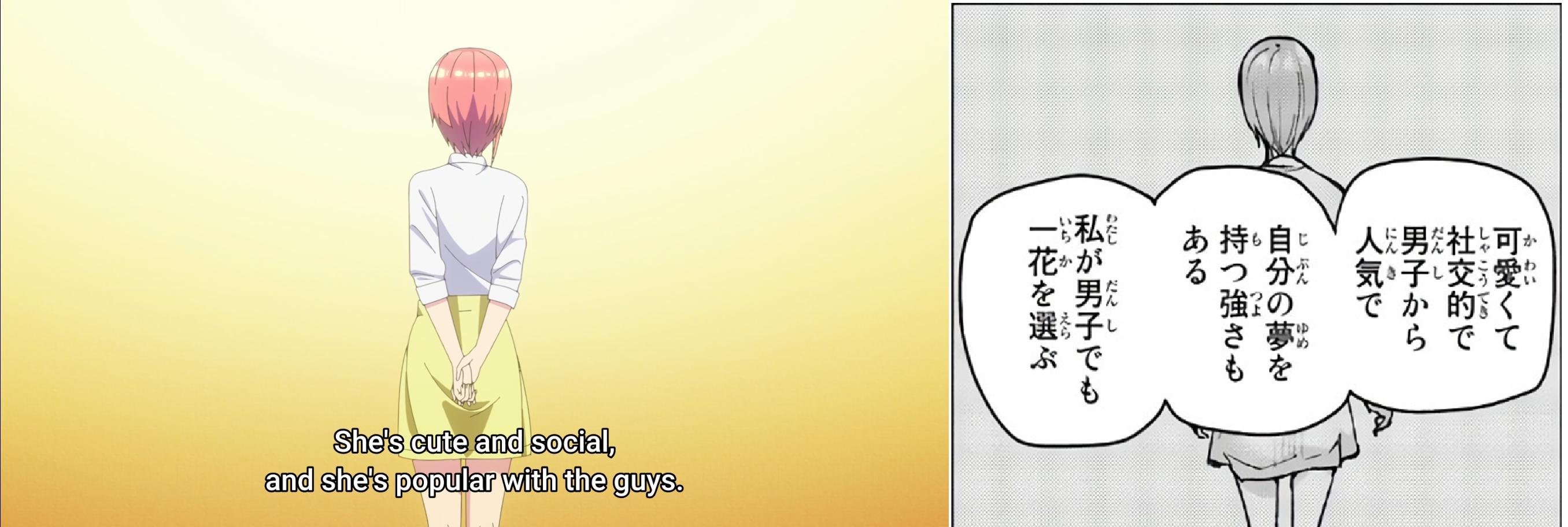In the anime adaptation of the manga The Quintessential Quintuplets, as well as the corresponding manga, I notice these 3 times (besides this) the word 'popular' (in the subtitles) was used:
Scene 1: Re 2 of the quintuplets Nino and Itsuki: Nino says to Itsuki '男にモテねーぞー' for eating a lot. Popular here is 'モテ'.
Scene 2: Raiha thinks 'お兄ちゃんが急にモテだした' when Raiha's onii-chan gets a massage from the quintuplets. Popular here is again 'モテ'.
Scene 3: Re 2 of the quintuplets Miku and Ichika: Miku says about Ichika '可愛くて社交的で男子から人気で.' This time, popular, is '人気'.
Questions:
What's up with the katakana: モテ is borrowing/loaning from what?
So how does モテ differ from 人気, in particular with that 'popular' appears to be used the same way...unless it's referring to Ichika's popularity as a semi-professional actress?
Here's an answer I read (which I guess assumes heteronormativity, rather than really literally 'opposite sex') :
人気 means for an object to be popular and モテる means for a person be popular among the opposite sex.
And another answer I read:
人気 is enable to use in wide situation.
- The actress is popular among young male.→あの女優は若い男性に人気です。
- Lately, this manga is popular in my class.→最近、私のクラスではこの漫画が人気です。
- In Japan, Watching baseball is popular for a long time.→長い間、日本では野球観戦が人気です。
2.1 - Is the different hiragana (different reading, is the term right?) for 男 (おとこ vs だん) possibly relevant here? And actually what's up with the different hiragana/reading for 男?



